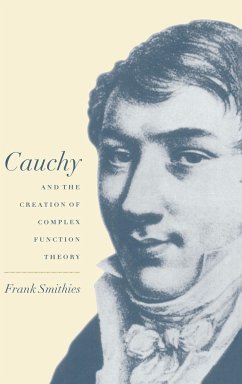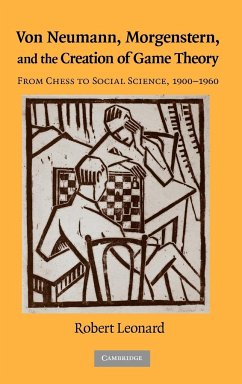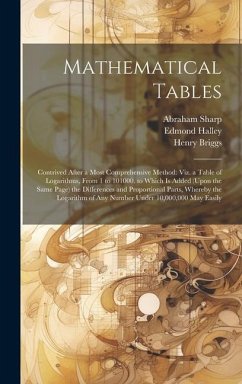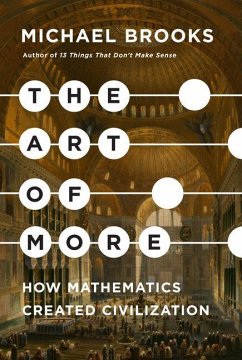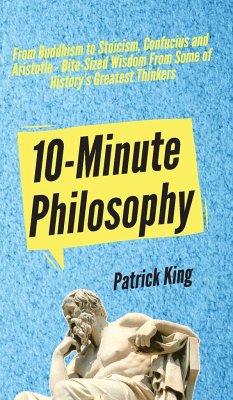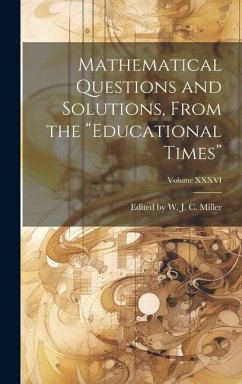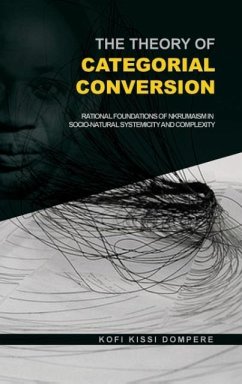
The Theory of Categorial Conversion
Rational Foundations of Nkrumaism in Socio-natural Systemicity and Complexity (HB)

PAYBACK Punkte
26 °P sammeln!
The Theory of Categorial Conversion is advanced by Professor Kofi Kissi Dompere as mathematical-philosophical and game-theoretic foundations to solve the problem of socio-natural transformation as governed by some internal process in relation to Marx, Schumpeter and Nkrumah. Dompere’ s methodology is based on the Africentric principles of opposites made up of actual-potential polarity, negative-positive duality with relational continuum and unity under cost-benefit rationality and Asantrofi-Anoma principle supported by fuzzy paradigm of thought. Socio-natural transformations are seen in term...
The Theory of Categorial Conversion is advanced by Professor Kofi Kissi Dompere as mathematical-philosophical and game-theoretic foundations to solve the problem of socio-natural transformation as governed by some internal process in relation to Marx, Schumpeter and Nkrumah. Dompere’ s methodology is based on the Africentric principles of opposites made up of actual-potential polarity, negative-positive duality with relational continuum and unity under cost-benefit rationality and Asantrofi-Anoma principle supported by fuzzy paradigm of thought. Socio-natural transformations are seen in terms of game theories in a fuzzy-stochastic space admitting of defective-deceptive information structures in quality-quantity space within the subjective-objective duality. The main premise of the monograph is that there exists a set of necessary and sufficient conditions for internal self-transformation. The necessary conditions are made up of categorial moments and categorial transfer functions forming the domain of control instrumentation in creating the sufficient conditions for categorial-conversion processes. Dompere presents an important methodological framework for the study and construction of the theories of socioeconomic development and political change, as well as info-dynamics connecting knowledge, sciences, innovation and engineering to the space of knowing, under qualitative-quantitative transformational dynamics with defective-deceptive information structures in the games for power and dominance by duals and poles in conflicts. The necessary conditions of socio-natural transformation are internally derived based on the relational structure of matter-energy-information activities within the dynamics of qualitative dispositions of dualities of actual-potential polarities. The theory consists of category formation showing ontological-epistemological categories, and categorial dynamics shows elemental conversions of categorial varieties in a continuum. The logical tools and the paradigm of thought for the theoretical development of Nkrumah’s framework involve self-excitement, self-correction and self-control systems induced by internal contradictions. The set of necessary conditions constitutes the natural necessity that constrains cognitive freedom in socio-natural transformations. Had this conceptual system been familiar to economists and social scientists, the construct of the theories of socioeconomic development and transformations would have been increasingly successful. _________________________________ Kofi Kissi Dompere is a professor of economics at Howard University. He has authored a number of scientific and scholarly works on economics, philosophy, and decision theory and related fields. He has also authored a number of monographs including twelve monographs with Springer Science Publishers, three with Greenwood Publishers, and two with Adonis-Abbey Publishers. His teaching areas include Economic Theory, Mathematical Economics, International Economics and Cost-Benefit Analysis as decision theory. His current research foci are on Theory of Development Process, Qualitative mathematics of transformations, epistemics and mathematics of fuzzy phenomena and their application in economic decision, mathematics of transformations and General information theory. He is the producer and host of a radio program "African Rhythms and Extensions" on WPFW 89.3 FM, in Washington D.C., USA. a member of Pacifica Foundation.





